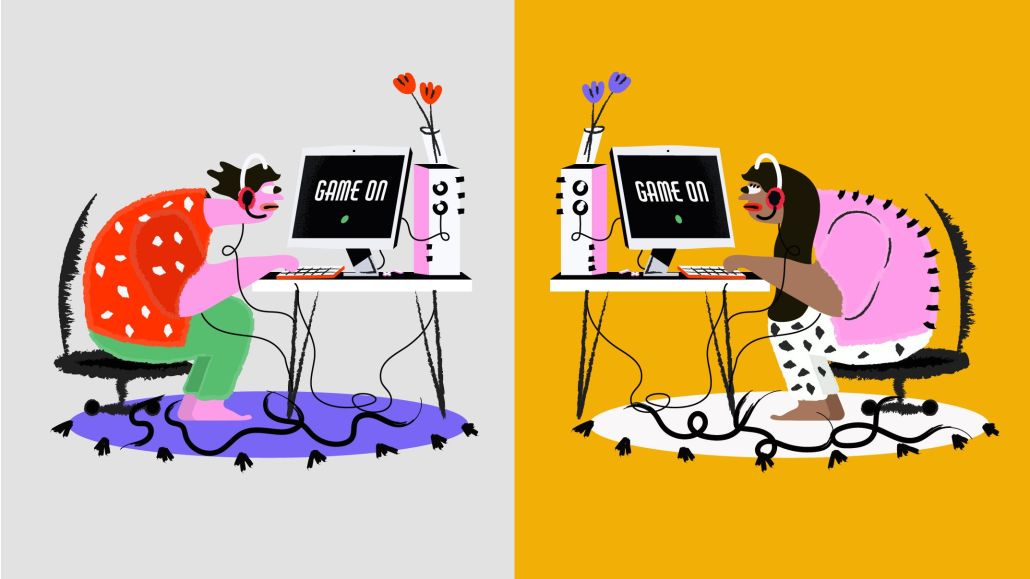Secure your place at the Digiday Media Buying Summit in Nashville, March 2-4
Why the esports industry’s publisher ownership model is on its way out

After spending years developing their own esports leagues in-house, game publishers have given up the ghost in 2024, handing the reins over to third-party league operators to keep their competitive scenes alive. It’s an end of an era — and a chance for the industry to become more sustainable in the long run, if it isn’t too late.
During the boom days of esports, publisher ownership of events and leagues was the industry’s dominant business model. Riot Games and Activision Blizzard charged investors millions of dollars in franchise fees for the right to field teams in in-house leagues such as the Overwatch League and League of Legends Championship Series (LCS), then spent millions of dollars of their own to produce spectacular world championships and flashy homestand events.
But over the past 12 months, publishers have made it clear that they are looking to divest from esports. Instead, they’re partnering with third-party vendors to run their leagues. Activision Blizzard still runs its Call of Duty League with a skeleton crew, but has handed both “Overwatch” and the lower levels of “Call of Duty” esports over to ESL/FACEIT Group.
Another prominent third-party league operator is the Danish company Blast, which has deepened its financial ties to publishers such as Ubisoft and Epic Games in 2024.
And over the weekend, Riot Games, long seen as the game publisher most deeply invested in esports, signaled its own willingness to work more closely with third-party operators by allowing teams to compete in “League of Legends” and “Teamfight Tactics” at the Esports World Cup, an event produced by the Saudi-Arabian-owned ESL/FACEIT Group.
A Riot representative declined to comment on the publisher’s future plans to work with third-party operators, but pointed to a recent blog post by Riot Games esports head John Needham, in which Needham acknowledged that Riot had “adjusted [its] policies and competitive calendar to unlock more opportunities for teams and players to participate in additional third-party events, something players have been asking for.”
Like many of the seismic shifts that have rocked the gaming industry over the past year, publishers’ decisions to divest from esports are a result of gaming coming back to earth after years of COVID-fueled growth in 2021 and 2022.
By early 2020, the esports industry was already teetering on the brink of a market correction that was staved off only by an influx of attention sparked by the suspension of traditional sports activity due to COVID-19. Post-pandemic, consumers’ interest in gaming receded somewhat, resulting in a $10 billion decrease in global gaming revenues between 2022 and 2023. Now, gaming companies are looking to tighten their operations, and esports has accordingly found itself on the chopping block.
For game publishers, which have long approached esports as more of a marketing expenditure than a true revenue stream, working with third parties to run their esports is simply good sense in 2024. They get to reap all the benefits of an active esports scene, which boosts player engagement and in-game purchases, without having to spend millions of dollars staffing and producing leagues and events.
“The flexibility for publishers to scale their esports activities up and down without in-house hires is just more flexible,” said ESL/FACEIT Group co-CEO Craig Levine. “The same reason you have a PR company or an event agency is the same reason that we’re finding success with publishers wanting to work with EFG.”
For the league operators themselves, the greatest upside of the rise of the third-party model is simply that it creates more opportunities for them to enrich themselves via lucrative publisher partnerships. When publishers were running their own esports leagues, third-party league operators were largely forced to operate in the margins. These days, there’s more than enough business to go around. Blast, for example, signed a run of new partnerships with publishers such as Ubisoft and Epic Games that allowed the Danish company to become profitable for the first time in 2023.
“One of the benefits of Blast at this stage of our life is we are quite a full-suite business. We can offer a publisher the production that you see today, but also the marketing content and social support all year round,” said Blast COO Tom Greene. “We’re good at user acquisition and understanding where publishers’ fans might be, and how to bring them more into our esports ecosystem.”
The rise of the third-party model is to some extent a return to way the esports industry was original structured during the early days. Competitive gaming as a product was pioneered by third-party companies such as Major League Gaming years before the publishers got involved, though it was publishers stepping in that supercharged the industry to its current scale in the mid-2010s.
Still, among some longtime industry observers, the prevailing sense is that the publishers swooped in to get their share of the hype money — and, now that they have it, that they are stepping back to let the esports industry once again fumble its way toward genuine profitability.
“EFG could have been running everything this entire time; that was possible, but Riot wanted to take it all in-house,” said esports consultant and journalist Rod “Slasher” Breslau. “So it’s Riot’s fuck-up for not making the LCS profitable. Who else am I supposed to blame?”
More in Marketing

Future of Marketing Briefing: AI’s branding problem is why marketers keep it off the label
The reputational downside is clearer than the branding upside, which makes discretion the safer strategy.

While holdcos build ‘death stars of content,’ indie creative agencies take alternative routes
Indie agencies and the holding company sector were once bound together. The Super Bowl and WPP’s latest remodeling plans show they’re heading in different directions.

How Boll & Branch leverages AI for operational and creative tasks
Boll & Branch first and foremost uses AI to manage workflows across teams.








